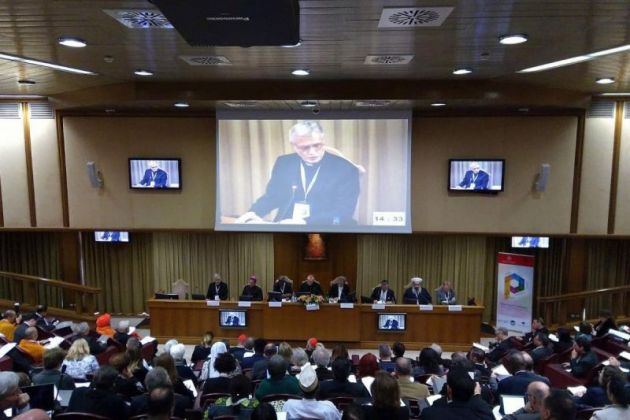Faith-based organizations 'uniquely placed to support' UN's 2030 Agenda says global Lutheran leader

A global Lutheran leader has said the United Nations Sustainable Development Goals are a shared blueprint for peace and prosperity for people and the planet to act on biblical principles.
The Lutheran World Federation General Secretary, Rev. Martin Junge urged faith-based organizations gathered at a Vatican conference to play a more incisive role in the implementation of the UN SDGs.
The LWF leader was among some 400 representatives of different faith communities taking part at the three-day March 7-9 international conference, Lutheran World Information reports.
It was titled "Religions and the SDGs (Sustainable Development Goals): Listening to the cries of the earth and of the poor'.
The event was organized by the Vatican Dicastery for Promoting Integral Human Development and the Pontifical Council for Interreligious Dialogue.
"I want to strongly advocate for a much clearer focus on children and youth in the Agenda 2030.
"We are heading toward an intergenerational conflict: youth is increasingly realizing and experiencing that neither the economy, nor the ecology are working for them," said Junge.
In his presentation, Junge spoke about the UN Agenda for the year 2030 with its slogan "Leave no one behind."
BIBLICAL PARABLE
He compared it to the biblical parable of the shepherd who sets out to find the one lost sheep, saying this message "resonates well with the Christian community" as it reflects "our deeply-held faith convictions and practices."
The vision of ensuring that no one is left behind in the implementation of the development goals stands in stark contrast to the prevailing logic of exclusion, said Junge, who is from Chile.
He said that churches need to be straight-forward in stressing that "a development paradigm that operates on the basis of exclusion can't be called development.
"We'd rather call it for what is: exploitation".
The Lutheran leader noted that while faith drives the Christian vision of inclusivity, the secular SDG Agenda must be shaped by the Human Rights framework which is under threat in many parts of the world today.
If the obligations enshrined in that framework are not upheld, he said, the SDG Agenda could lead to the weakening of accountability to these obligations, thus continuing to leave "people and entire communities behind."
Junge referred particularly to gender inequality, which "if left unaddressed," he said, "will always leave women behind: underpaid, less educated, stigmatized and altogether on an unequal footing when it comes to development."
While he acknowledged that "gender discourse is often difficult" for faith-based organizations, he draws inspiration from the biblical stories of Jesus meeting, talking and listening attentively to women to illustrate God's vision of leaving no one behind.
ECUMENICAL PATRIARCH
Junge praised the leadership of both the Orthodox leader Ecumenical Patriarch Bartholomew 1 of Constantinople and Pope Francis, without whose encyclical "Laudato Si" on care for creation.
The Lutheran leader said that without the Pope's document, "the Paris agreement could hardly have been achieved."
Both Francis and Bartholomew "constantly remind us of our role as stewards of God's creation" and "point to the deep conversion and transformation" that is needed and which faith-based organizations are "uniquely placed to support," said Junge.
Pope Francis described the aim of the conference as "listening to the cry of the earth and of the poor."
The conference highlighted the need for collaboration between faith communities in areas as diverse as climate change, health, education, inclusion, inequality and social changes, as well as the consequences of the 4th industrial revolution.
Rev. Matthew Ross, programme executive for Diakonia and Capacity Building, attended the conference on behalf of the World Council of Churches.
"The urgency of action needed in tackling climate change is beyond doubt," said Ross. "Given that a large majority of the world's population belongs to a faith tradition, the faith communities have a deep responsibility to work for human flourishing and to combat climate change."